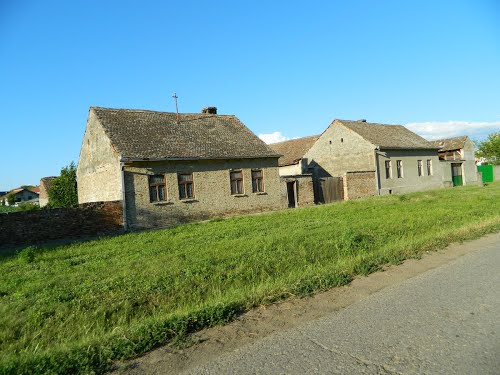Omoljica Shtetl




Political control of Omoljica has changed hands many times throughout the history of the village. Between 1552 and 1718 the village of Omoljica was part of Temeşvar Eyalet in the Ottoman Empire. At the end of this period, under the terms of the Treaty of Požarevac, the village became part of the Habsburg's Banat. In 1765 Omoljica was included in the Austrian Empire's military frontier. Some time later the village was incorporated into Torontál County.
After World War I, in conformity with the Treaty of Trianon, Omoljica and surrounding area became part of the provisional Torontalsko-tamiške Županja. The year 1922 saw Omoljica part of Belgrade Oblast; in 1929 the village was part of the Danube Banovina in the Kingdom of Yugoslavia.
Following the Second World War, Omoljica became, successively, part of Srez Pančevo of the Socialist Federal Republic of Yugoslavia and then part of the Federal Republic of Yugoslavia. Throughout the centuries, Omoljica village and environs, remained part of the Pančevo Municipality.
The oldest existing house in the village was built in 1766. This house was a quarantine station on the military frontier. One of the most famous residents in this house was Vuk Karadžić (1787 - 1864), a Serbian philologist and linguist, who was a key reformer of the Serbian language and the father of the study of Serbian folklore.
During World War II, the Danube Swabians, who are ethnic Germans, were given preferential status by the Nazis. A number of the Swabians were transferred to Germany as part of Hitler's Heim ins Reich (Back Home) policy. The Danube Swabians were strongly influenced by Nazi ideology and were a fifth column during the Nazi invasion of Yugoslavia. A significant number of Swabians joined Waffen-SS volunteer units. One of the most infamous units was the Seventh SS Prinz Eugen, which was responsible for massacres of and atrocities against many thousands of civilians.
Omoljica (Омољица)
Omoljica is a village in the Serbian municipality of Pančevo, South Banat District, Vojvodina Province. Omoljica is the diminutive of Homolje – Little Homolje. The German version of the village's name is Homolitz.


click on
Omoljica Images
for more Omoljica photos

This page is hosted at no cost to the public by JewishGen, Inc., a non-profit corporation.
If you feel there is a benefit to you in accessing this site, your
JewishGen-erosity
is appreciated.
Copyright © 2017 Leah Gedalia
